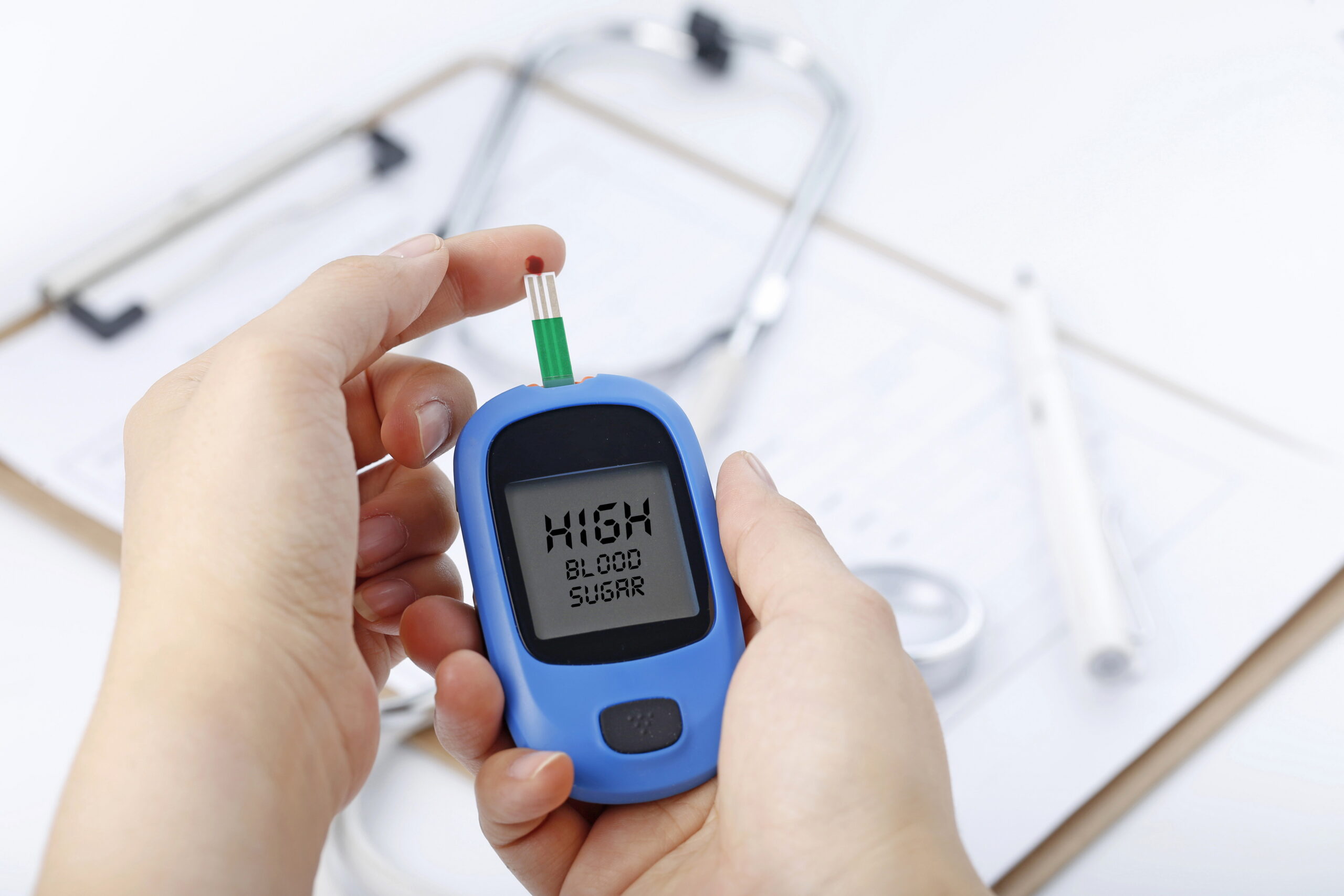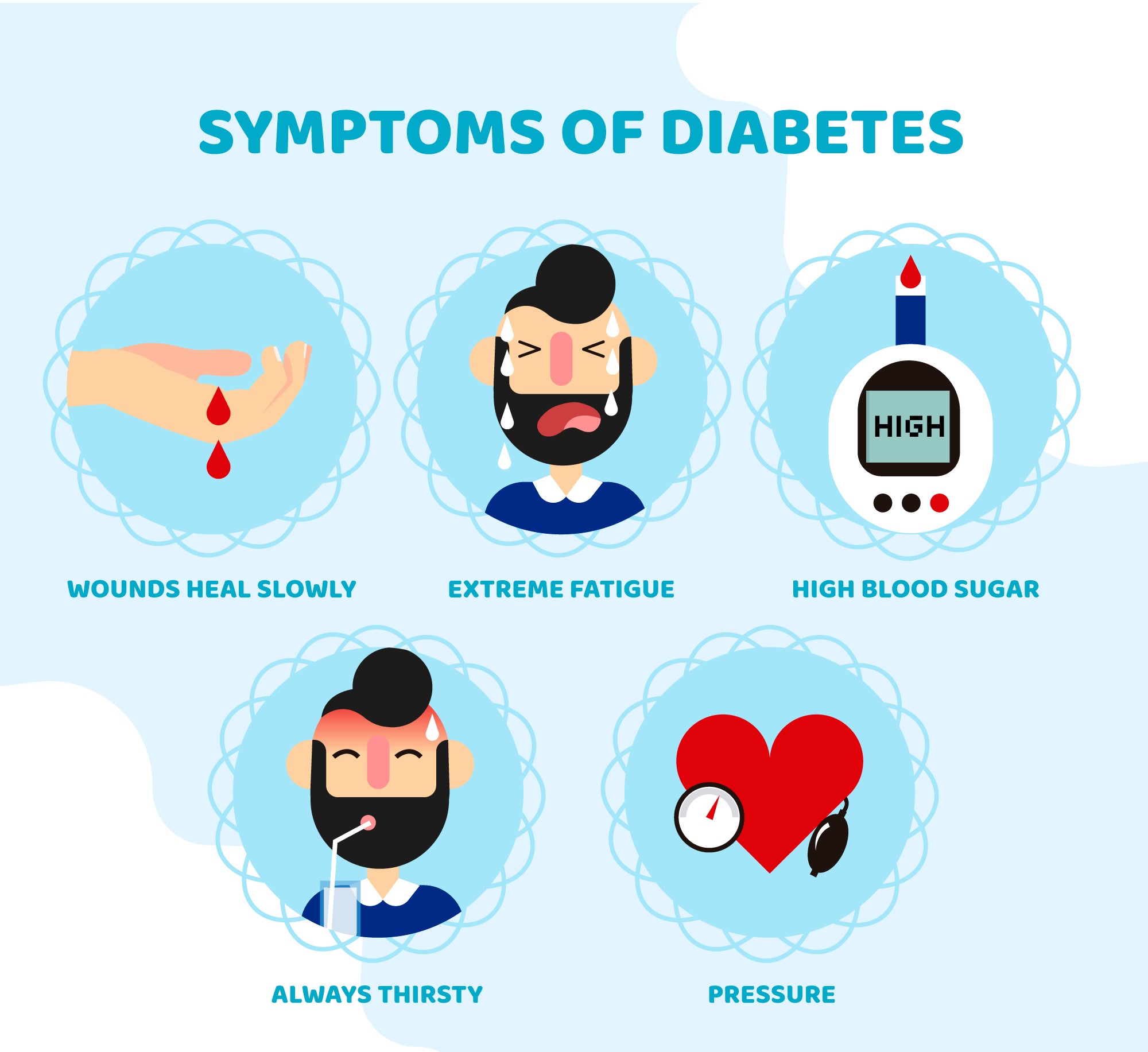Diabetes
Diabetes is a chronic illness marked by elevated blood glucose (sugar) levels. It arises from insufficient insulin production or from the body’s inability to utilize the insulin that is produced. Type 1, Type 2, and gestational diabetes are the three main forms of diabetes. Effective management of diabetes necessitates a combination of medication, lifestyle modifications, and routine monitoring.

Types of Diabetes
Type 1 Diabetes: an autoimmune disease in which the body targets the pancreatic beta cells that produce insulin. Though it can occur at any age, it usually develops in childhood or adolescent.
Type 2 Diabetes: The most prevalent kind, which is frequently associated with obesity and other lifestyle issues, happens when the body either stops producing enough insulin or becomes resistant to it.
Gestational Diabetes: appears during pregnancy, normally goes away after delivery, but raises the possibility of Type 2 diabetes in the future.
Symptoms
The following are typical signs of diabetes:
- intense hunger
- Unexplained weight loss
- Fatigue
- Blurred vision
- Slow-healing sores or frequent infections
- Tingling or numbness in the hands or feet

Causes and Risk Factors
The causes and risk factors of diabetes differ according on its kind.
Type 1 Diabetes: Although the precise reason is uncertain, environmental and genetic factors are involved. Diabetes runs in the family, which raises risk.
Type 2 Diabetes: Risk factors include age, family history, and ethnicity.: Associated with genetic variables and lifestyle decisions such poor diet, inactivity, and obesity.
Gestational Diabetes: Insulin function can be affected by hormonal changes that occur during pregnancy. Obesity, a family history of diabetes, and a history of gestational diabetes are risk factors.
Diagnosis
Numerous blood tests are used to diagnose diabetes, including:
Fasting Blood Glucose Test: measures blood sugar after an overnight fast.
Oral Glucose Tolerance Test (OGTT): Following an overnight fast, blood sugar levels are taken.
Hemoglobin A1c Test: Reflects average blood sugar levels over the past 2-3 months.
Treatment Options
Managing diabetes involves medication and lifestyle modifications:
Lifestyle Changes:
- A diet high in fruits, vegetables, whole grains, lean protein, and healthy fats
- Consistent exercise to keep a healthy weight
- Regularly checking blood sugar levels
- Giving up smoking and consuming less alcohol
Medications:
- Insulin: Necessary for Type 1 diabetes and occasionally for Type 2 diabetes
- Oral Medications: Several classes for Type 2 diabetes, including SGLT2 inhibitors, sulfonylureas, and metformin
- Injectable Medications: Insulin and GLP-1 receptor agonists for improved blood sugar regulation

Complications
Severe effects from uncontrolled diabetes might include:
- Cardiovascular disease
- Nerve damage (neuropathy)
- Kidney damage (nephropathy)
- Eye damage (retinopathy)
- Foot problems due to poor circulation and nerve damage
- Skin conditions
- Alzheimer’s disease
Pharmacist’s Role
Pharmacists play a crucial role in diabetes care by:
- Teaching patients the correct administration and adherence to their medications
- Giving advice on blood sugar monitoring and analyzing findings
- Giving guidance on modifying one’s lifestyle to control blood sugar levels
- Supporting the management of drug side effects and avoiding difficulties
Conclusion
Diabetes is a chronic illness that may be managed, but it does require continual treatment and lifestyle modifications. To lower the risk of problems, early detection, efficient management, and preventative actions are essential. Working together with pharmacists and other healthcare professionals can help people with diabetes live healthier, more controlled lives.

